The Global Rise of Singles
A key under-rated factor in falling fertility is the rise of singles. Modern societies are witnessing a seismic shift in coupling. Previously, patriarchal societies enjoyed a demographic advantage: marriage and motherhood were celebrated, spinsters shamed. Every woman got married and pumped out babies. But as societies liberalise and stigma fades, people can afford to be choosy - making relationship-formation increasingly dependent on charm, affection and enjoyment!
Yet compatibility can prove elusive. Men and women who are shy, introverted, boring, aggressive, violent, manipulative, deceitful, unfaithful, or ideologically polarised may ultimately call it quits. The sources of friction are wide-ranging - from personality mismatches to ideological divides. And after perennial disappointments, some may opt out.
Online connectivity may be providing attractive substitutes: hyper-engaging video games, sports bets, podcasts and social media. As the age of couple-formation rises, the reproductive window closes. Without a loving partner, they may hesitate to procreate alone.
Iran
Take Iran, where marriages have plummeted from 800,000 to 480,000 annually over a decade, despite government incentives. The shift reflects changing pathways to status and social inclusion. Neda, a 27-year-old personal trainer in Tehran, captures the zeitgeist: “People in my social circle keep telling me it's not worth giving up my freedom to get married, and they encourage me to continue living happily single”. Rather than enter unfulfilling marriages, young Iranians are incrasingly choosing to remain single.
Religious authorities see this as cultural corruption. Farzaneh Kaseb Ahadi, an Islamic studies teacher, blames “western cultural norms through social media and satellite television” appealing to “young people with shallow religious beliefs”.
From my interviews with Iranian women, I suspect he is right. Watching TV or browsing social media, young women get a taste for equality and reaffirm these values with female friends. Last year, many protested in droves, calling for “Women, Life, Freedom”. But if the supply of eligible men falls short, women may prioritise independence. No wonder Iran's fertility rate has dropped to 1.7.
Turkey
In Turkey, marriage rates have fallen 20% over two decades. During my recent fieldwork across six Turkish cities, I met so many confident, ambitious young women. Unlike older generations, none wanted to cook, clean and stay at home.
In Konya, I spent a week with a young woman who encapsulates generational change. The very first time we met, I noticed that Fatima gesticulates like a combination of Kim Kardashian and Nicki Minaj (albeit in a hijab). When translating her grandmother’s life history, she frequently added, “OH THIS IS CRAAAZY!!”. When we visited her newly married friend, she was horrified by the daily routine: socialising with the 50 year old mother-in-law. For a young entrepreneur with supportive parents, she was not enticed! Fatima is single.
The European Union
In the EU, 20% of men (aged between 25 and 54) live alone. The big shift is not childless couples, but the rise of singles. Single adult households have shot up by 17% between 2015 and 2024, compared to 5.8% for all households.
Scandinavia leads the pack - with the highest share of people living alone. This reflects a strong culture and political economy of state-enabled independence. Meanwhile in societies with stronger kinship - like Korea, Greece, Spain and Italy - young people also tend to be single, but live with their parents.
In Sweden, male fertility is much lower among those who performed poorly in cognitive tests, earnt less, or were obese. In Finland too, middle-aged men are more likely to be living alone if they only have high school education.
USA
In the U.S., a rising share of young people are not in steady relationships nor living with a partner.
John Burn Murdoch helpfully plotted this graph below.
Falling marriages mean falling fertility
The marriage-fertility link is stark. In South Korea, never-married rates track perfectly with childlessness. China and the UK show similar patterns - as marriages fall, so does fertility. Without loving, committed relationships, people hesitate to take on life's biggest responsibility. Instead, they get cute puppies.
As cultural coercion fades, women increasingly seek relationships based on love, respect and affection. But in some communities, there’s a real shortage in supply. Women too may struggle to entice. The result? Rising singlehood and tumbling fertility.
Once women gain freedom, future fertility may depend on love and equality.
See my short video on how movies drive cultural change
Related Essay:






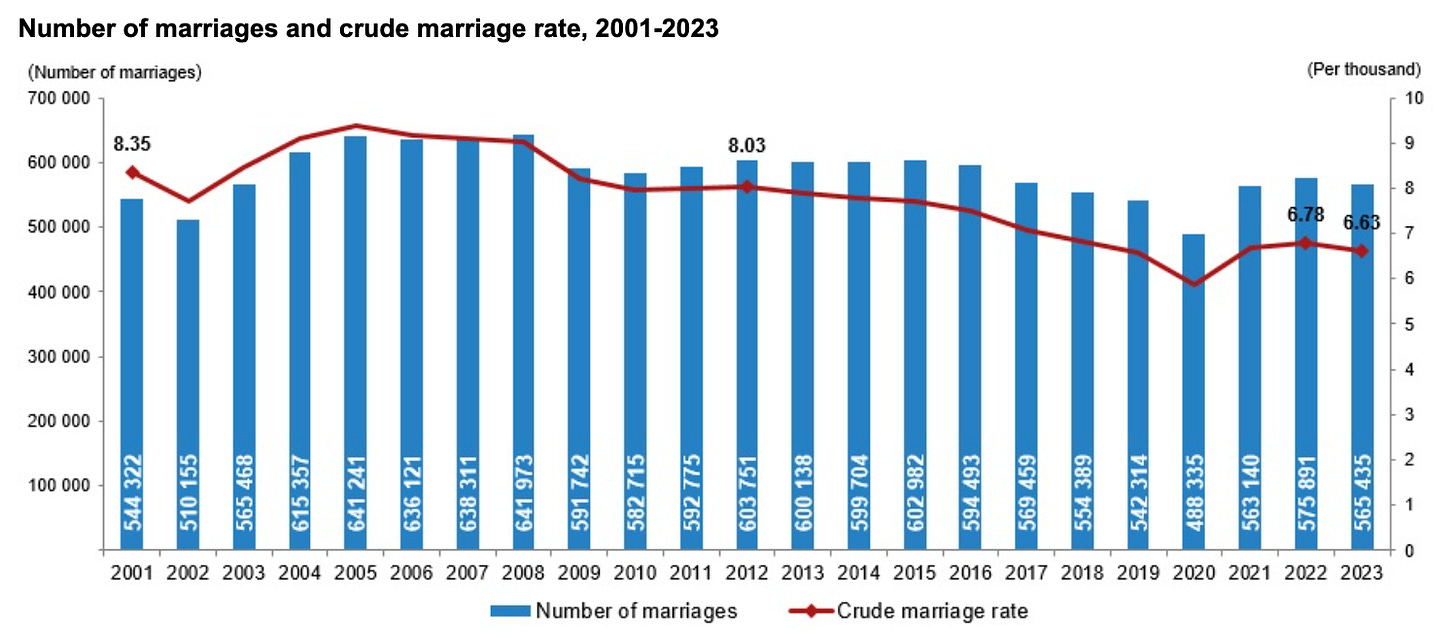



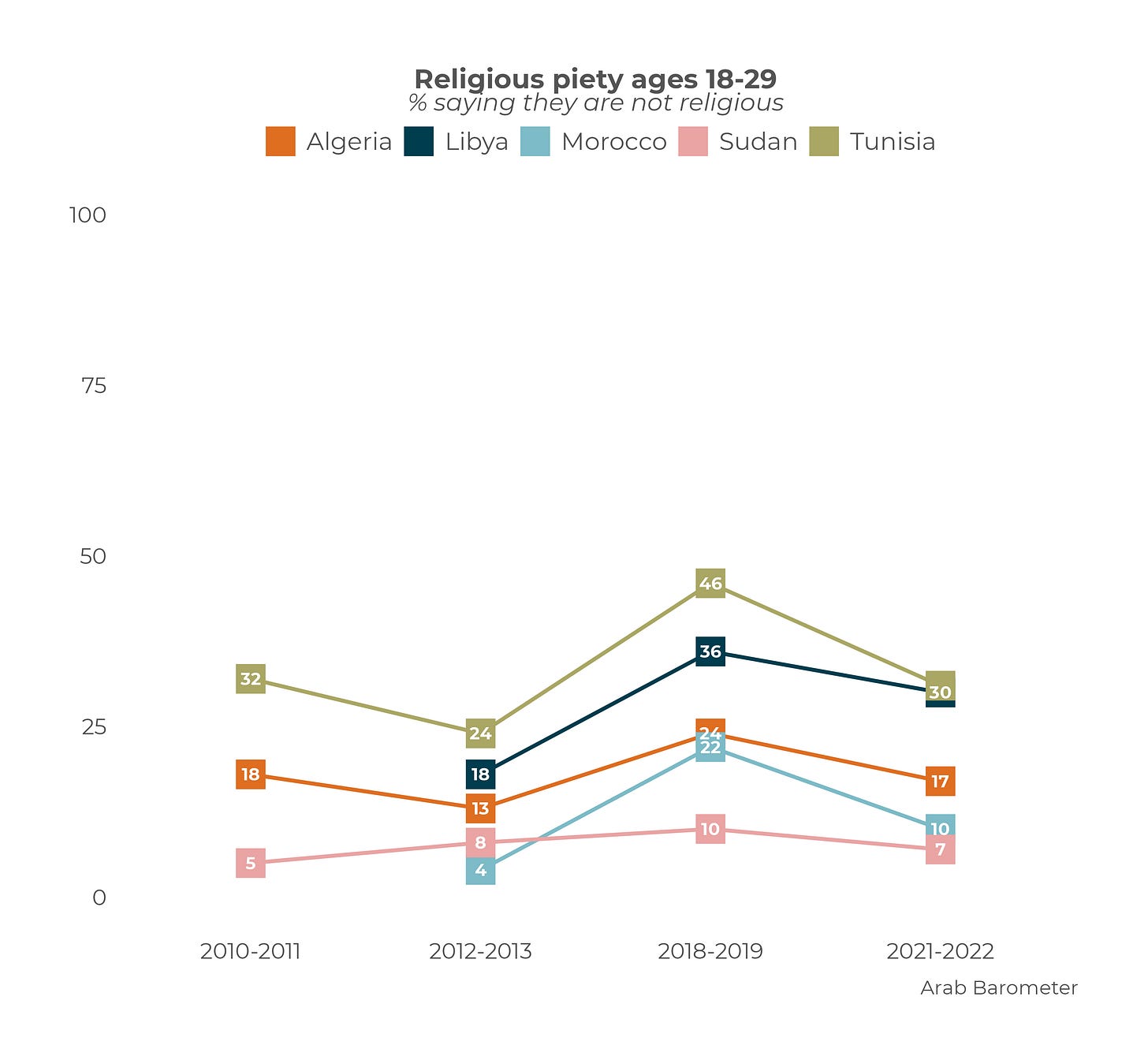

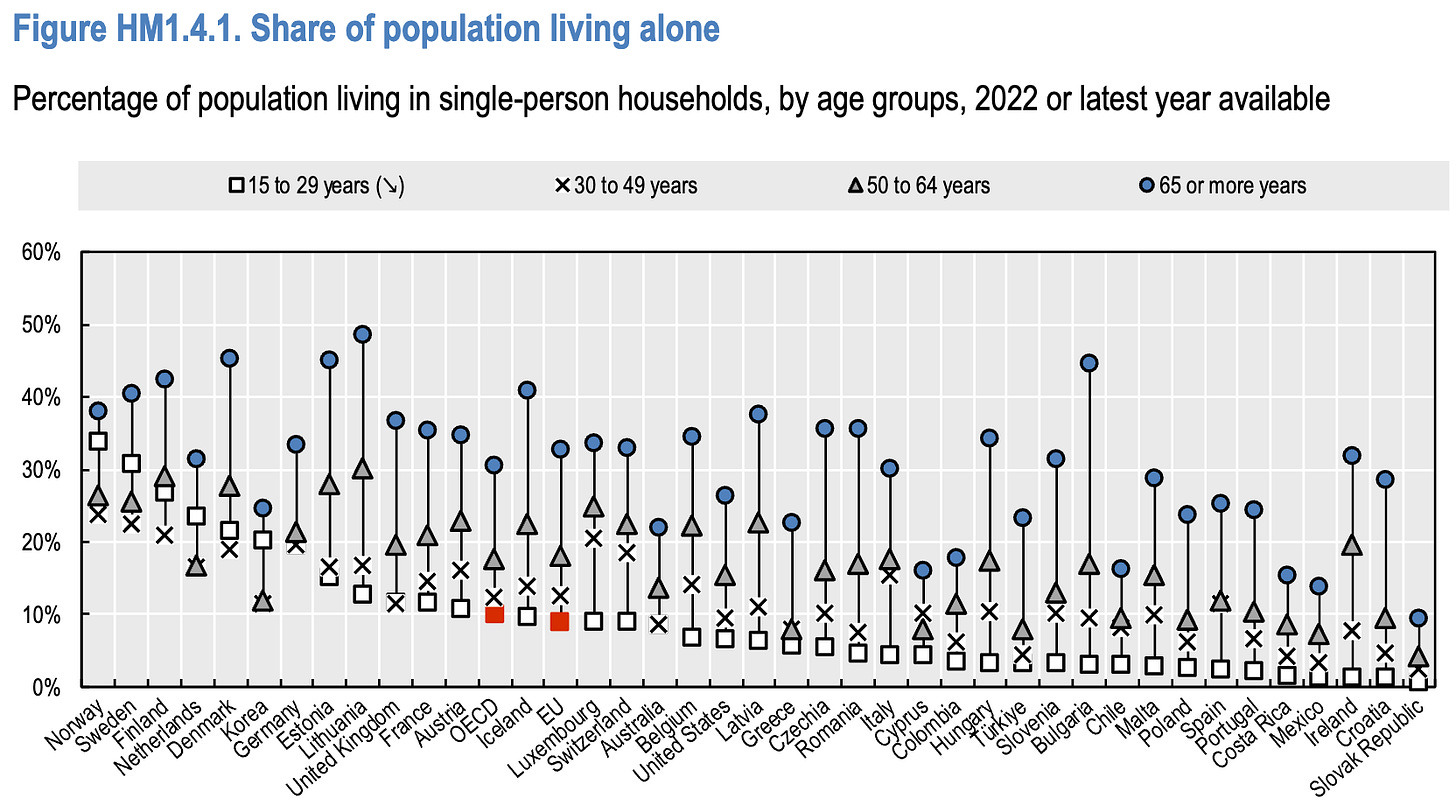
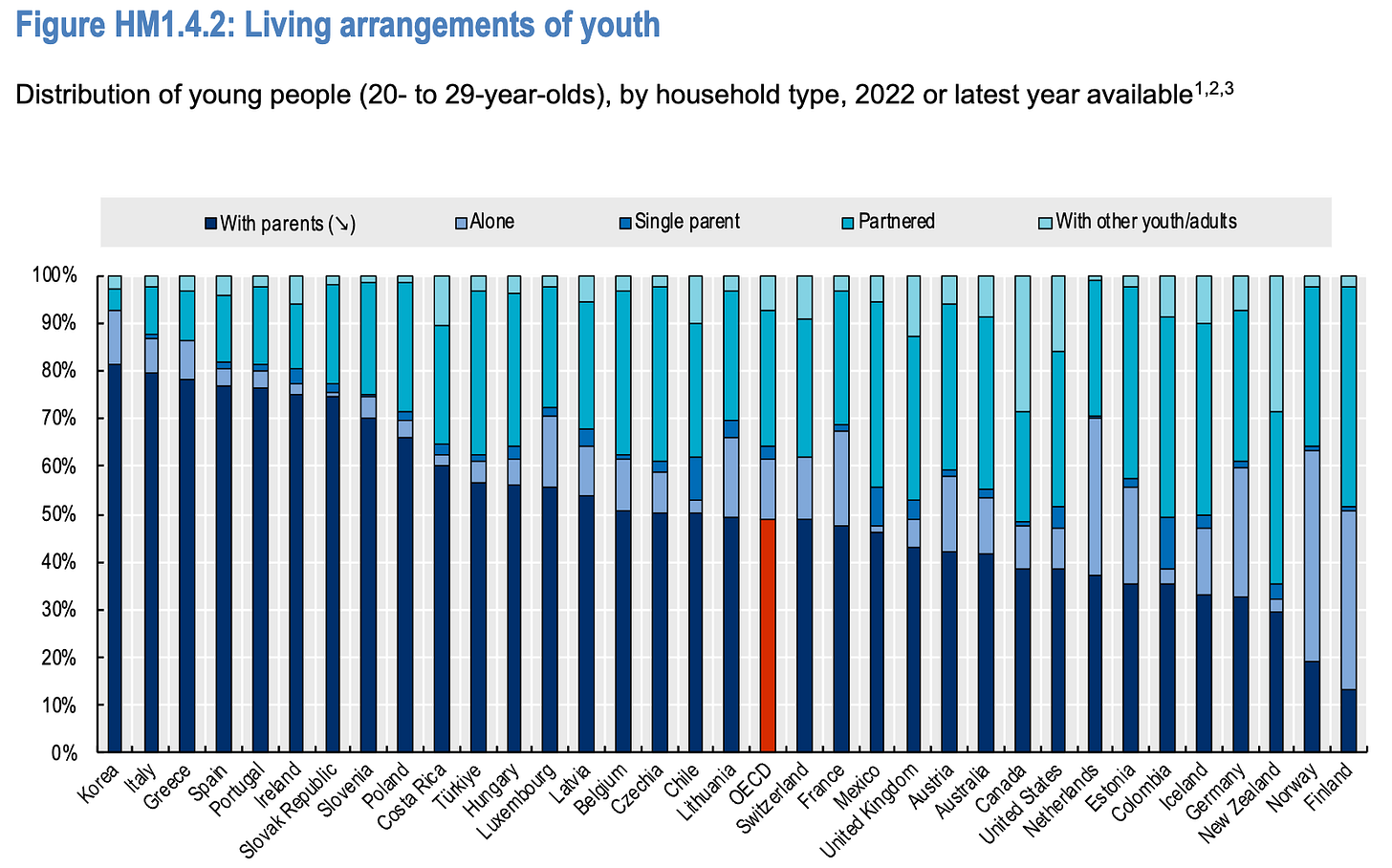

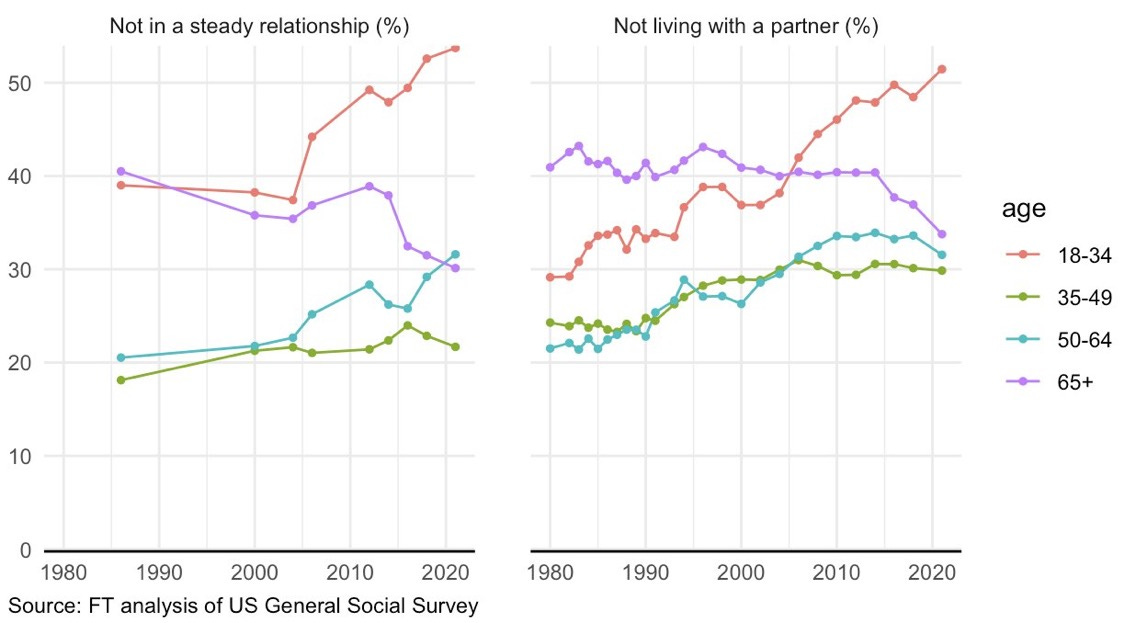





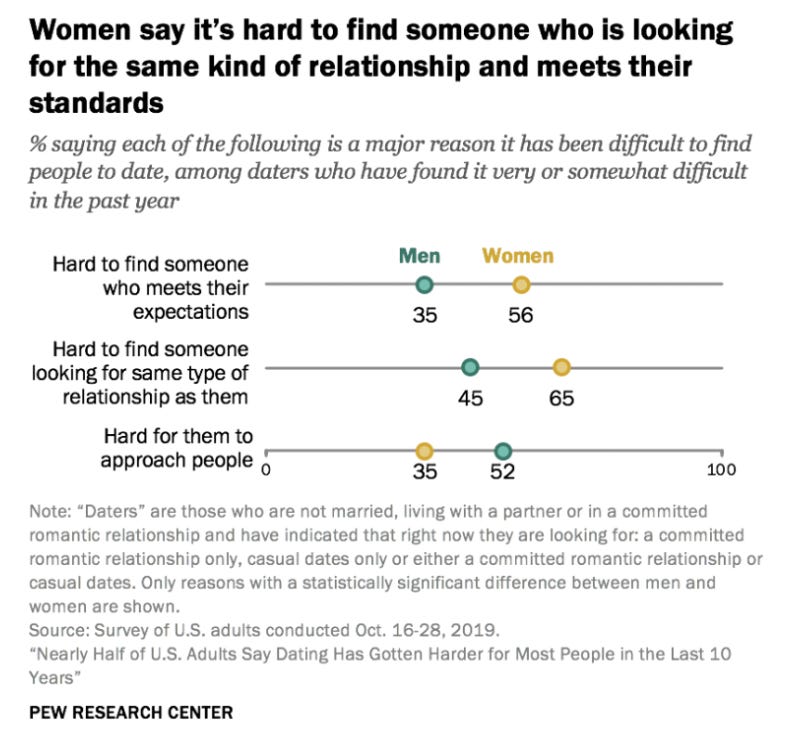


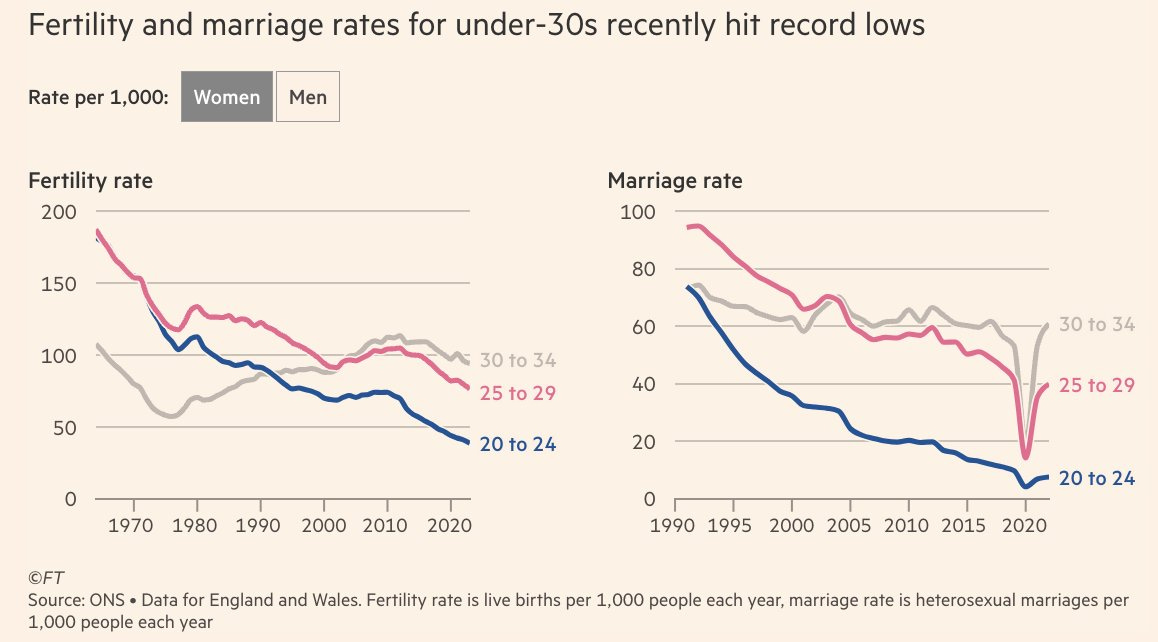
In Sweden, the _average_ age of people leaving their parental home is 17.5 years.
see https://ec.europa.eu/eurostat/en/web/products-eurostat-news/-/edn-20210812-1
We also spend a lot of money on home care for the elderly, which enables them to live independent lives in their own houses and apartments, rather than with relatives or in institutional care. This means that we have a lot of 'single' people who aren't rejecting marriage so much as being not of an age where looking for a marriage partner is a priority. It makes these sorts of comparisons hard for the researcher.
This line jumped out to me: "The shift reflects shifting pathways to status and social inclusion."
Anecdotally, this feels like a huge factor among educated urban elites. There is almost no status conveyed by being married, or having kids, etc. In many cases, you lose status by forming a stable family. I doubt most people are overtly thinking about that all the time, but that line really captures what I've seen first hand